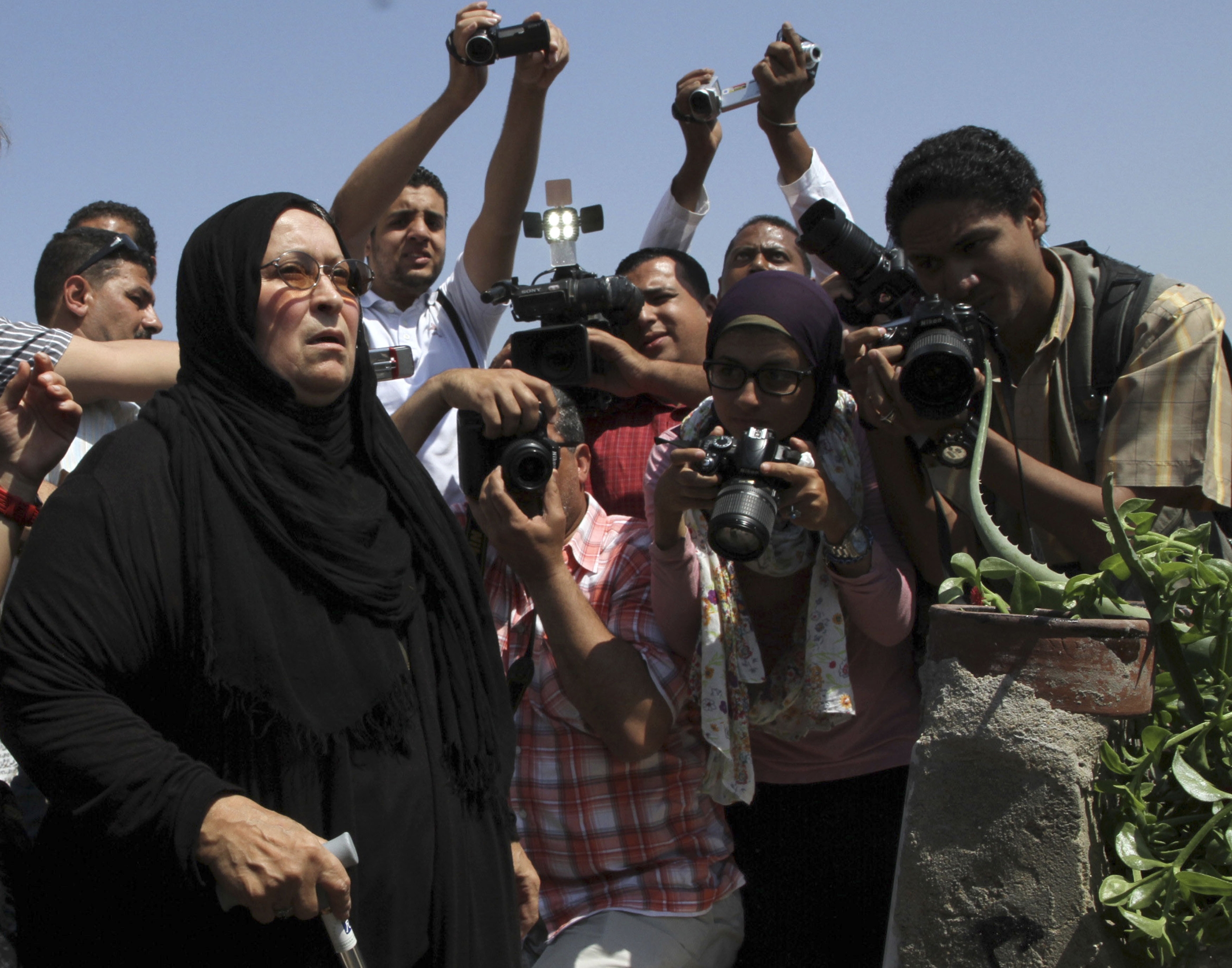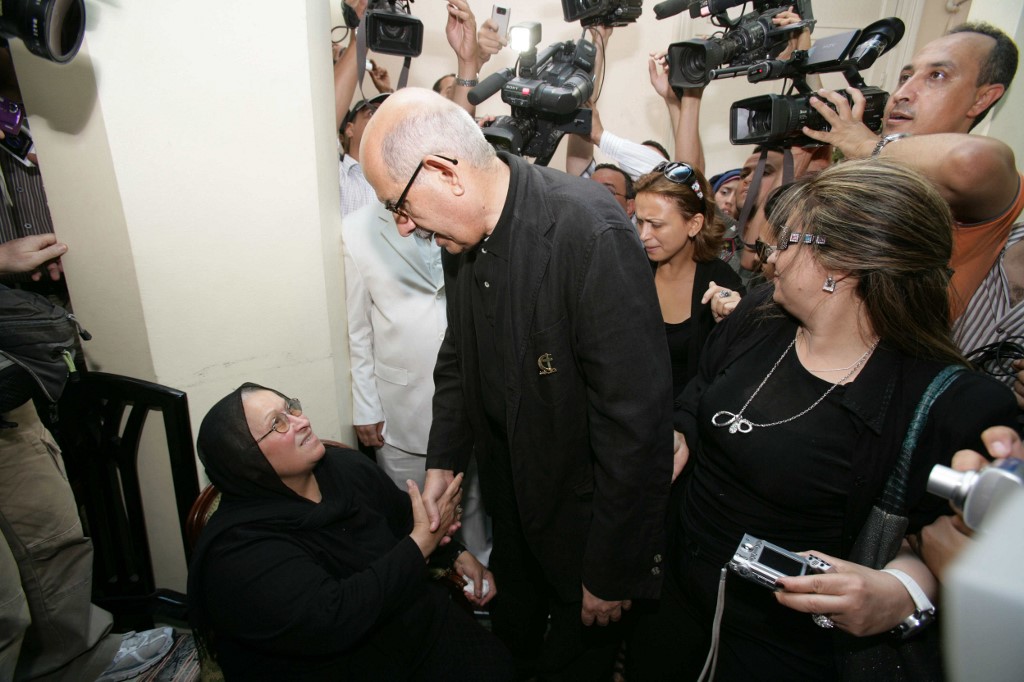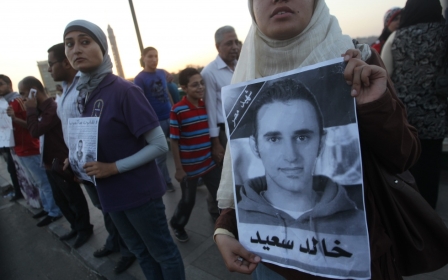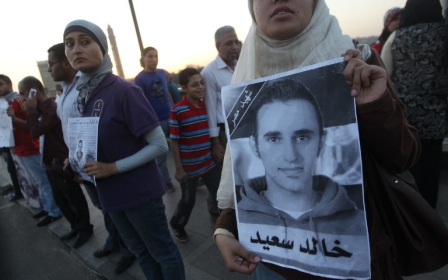Egypt bans Tahrir Square memorial for mother of revolutionary icon Khaled Saeed

Egyptian security services banned a memorial service in Cairo on Wednesday for Laila Marzouk, the mother of an Egyptian whose death and torture at the hands of Egyptian police was one of the main triggers of the 2011 revolution.
Marzouk died on Sunday in the US after a battle with cancer and was buried in Philadelphia, according to her family.
Marzouk’s daughter, Zahraa Saeed, said on Facebook on Wednesday that security agencies had cancelled a symbolic funeral organised by friends and supporters of her mother in Omar Makram mosque in Tahrir Square.
She did not elaborate why the event was cancelled.
The murder of Khaled Saeed in 2010 helped ignite the January 2011 revolution against Hosni Mubarak’s authoritarian rule.
New MEE newsletter: Jerusalem Dispatch
Sign up to get the latest insights and analysis on Israel-Palestine, alongside Turkey Unpacked and other MEE newsletters
Saeed, 28, is possibly one of the most famous torture victims in Egypt’s history. He was tortured to death by two police officers in Alexandria on 6 June 2010, his murder is believed to be in retaliation for a video he posted online showing officers distributing loot and drugs seized during police raids among themselves.
Images of Saeed's disfigured face sparked nationwide protests against police brutality. A Facebook page set up in his memory, "We are all Khaled Saeed", became the main platform through which activists organised protests against police brutality and Mubarak’s rule.
Its administrators chose 25 January as the date of the protest that marked the beginning of the Egyptian revolution because of its symbolism as National Police Day in Egypt.
Following Saeed’s death, Laila Marzouk led efforts to prosecute his killers despite initial attempts by the Interior Ministry to exonerate them.
Her activism earned her the support of some prominent Egyptian opposition leaders at the time, including Mohamed ElBaradei and Ayman Nour.
Marzouk also showed solidarity with the family of Italian student Giulio Regeni, another alleged victim of torture by Egyptian security services.
“I feel your pain, just like I suffer every day until now for my son Khaled,” she said in a video message to Regeni’s family on YouTube.
In 2015, Egypt’s highest appeals court upheld a ten-year prison sentence against the two officers who killed Saeed.
Middle East Eye delivers independent and unrivalled coverage and analysis of the Middle East, North Africa and beyond. To learn more about republishing this content and the associated fees, please fill out this form. More about MEE can be found here.




